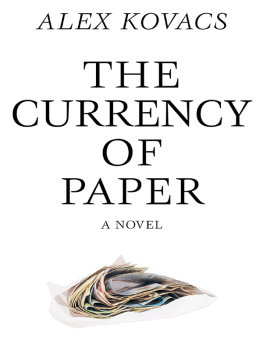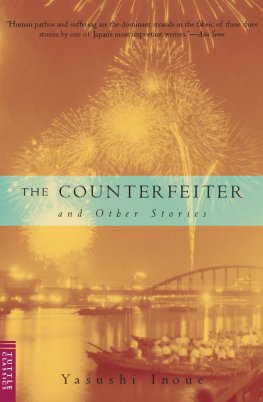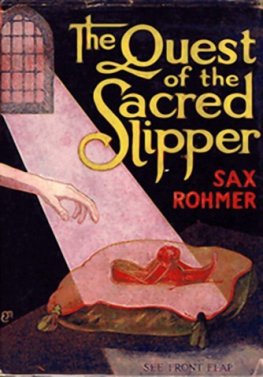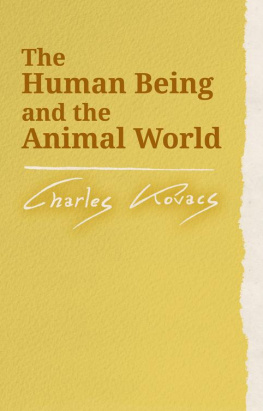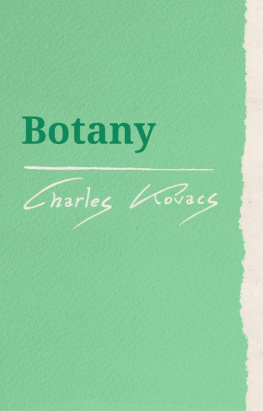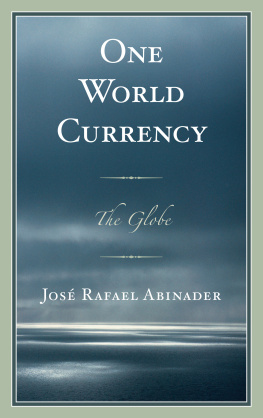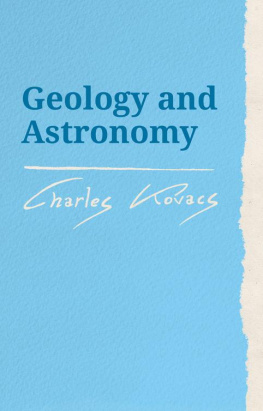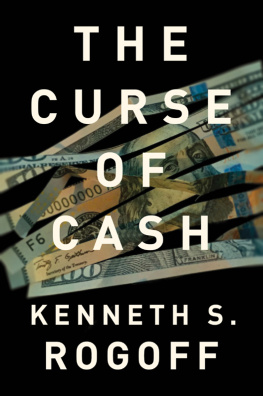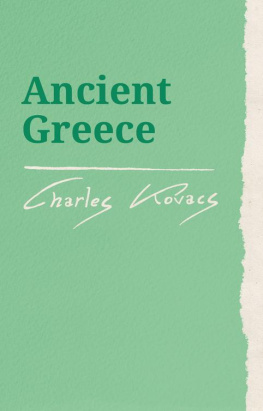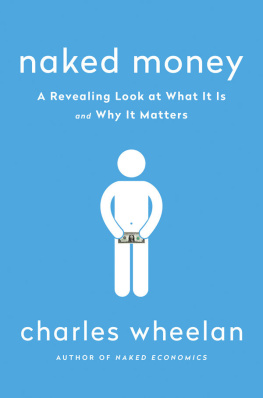Kovacs - The currency of paper
Here you can read online Kovacs - The currency of paper full text of the book (entire story) in english for free. Download pdf and epub, get meaning, cover and reviews about this ebook. City: England--London., London (England), year: 2013, publisher: Dalkey Archive Press, genre: Science. Description of the work, (preface) as well as reviews are available. Best literature library LitArk.com created for fans of good reading and offers a wide selection of genres:
Romance novel
Science fiction
Adventure
Detective
Science
History
Home and family
Prose
Art
Politics
Computer
Non-fiction
Religion
Business
Children
Humor
Choose a favorite category and find really read worthwhile books. Enjoy immersion in the world of imagination, feel the emotions of the characters or learn something new for yourself, make an fascinating discovery.
The currency of paper: summary, description and annotation
We offer to read an annotation, description, summary or preface (depends on what the author of the book "The currency of paper" wrote himself). If you haven't found the necessary information about the book — write in the comments, we will try to find it.
A counterfeiter, sculptor, filmmaker, mystic, and terminal recluse uses his ill-gotten gains to wreak secret havoc upon a bankrupt London, in this timely debut novel
Kovacs: author's other books
Who wrote The currency of paper? Find out the surname, the name of the author of the book and a list of all author's works by series.
The currency of paper — read online for free the complete book (whole text) full work
Below is the text of the book, divided by pages. System saving the place of the last page read, allows you to conveniently read the book "The currency of paper" online for free, without having to search again every time where you left off. Put a bookmark, and you can go to the page where you finished reading at any time.
Font size:
Interval:
Bookmark:

THE CURRENCY OF PAPER
ALEX KOVACS

... labour is external to the worker, i.e., it does not belong to his essential being; that in his work, therefore, he does not affirm himself but denies himself, does not feel content but unhappy, does not develop freely his physical and mental energy but mortifies his body and ruins his mind. The worker therefore only feels himself outside his work, and in his work feels outside himself. He is at home when he is not working, and when he is working he is not at home. His labour is therefore not voluntary but coerced; it is forced labour. It is therefore not the satisfaction of a need; it is merely a means to satisfy needs external to it. Its alien character emerges clearly in the fact that as soon as no physical or other compulsion exists, labour is shunned like the plague. External labour, labour in which man alienates himself, is a labour of self-sacrifice, of mortification.
The Economic and Philosophic Manuscripts of 1844, Karl Marx
(1950)
Maximilian Sacheverell Hollingsworth wondered if he could dictate the entire course of his life on a single day. After some deliberation, a process lasting the length of a Wednesday morning, he concluded that it was possible. Suddenly, with no prior warning, it seemed to him a matter of some urgency to plan all of the details of his adulthood whilst he was still a young man. Brimming with optimism, he hoped that it was simply necessary to decide what he most wanted to do and in which order. Immediately he set to work upon the drafting of a plan.
At noon he sat inside a public house in Bloomsbury. This was a place populated only by solitary male drinkers, isolated men wearing ruffled coats and smoking pipes emitting circles of smoke that hovered and drifted in an unfurling cloud above their heads. Grey sunlight dissolved into the dingy huddles of shadows thrown from the battered furnishings. In studied silence the barmaid washed empty glasses and placed them in long neat rows along the dark mahogany shelves. Maximilian sat at the left end of the bar, beside the thick length of rope that dangled from the mouth of the silent brass bell, drinking a succession of pints of bitter ale, his gaze directed out towards the street in the hope of discovering fresh inspirations. With the progress of his imbibing he felt the slowness of the afternoon unwinding down the length of his spine.
No matter that his plan had to exclude innumerable torments and banalities which he was destined to encounter, that it could not possibly survive for years on end without mutations and excisions, that in many of its details it was probably lacking in all pragmatism, all that was significant was the necessity of forming a definitive set of strategies, a declaration of intention based upon his genuine desires, distillations of urges that he had possessed since he was a child. In all the foolishness and idealism of youth, he forged a series of eternal vows.
Disappearing without leaving a single clue to his whereabouts, he would dedicate himself to the completion of numerous projects, living out a life crowded with impossible undertakings and miraculous pursuits, all incognito, with no one privy to his role until after his death. He would investigate arcane branches of knowledge, brand every neglected street and alleyway with his footsteps, consecrate secret temples to the gods of wisdom and delirium, serve as an unseen philanthropist to thousands of people.
Ordinary ambitions did not interest him. He possessed no desire to excel within a regular field, to build any sort of successful career. Instead he would perform acts of a kind that had barely been encountered before, challenging the boundaries of what it was possible to do within the span of a lifetime. His projects would perhaps fall within the category, broadly speaking, of art, but would refuse to utilise the terms or follow the strictures of any artistic establishment or school. Primal experience, rather than formal aesthetic statements, would be his priority: experiencing it, guiding it, making a gift of it to others. All would be done in secret and no one else would be permitted to see his work for what it was until he had died. Only then would he reveal the extent of his labours to those who were prepared to listen.
Having broken all contact with his aristocratic family and their milieu, Maximilian found himself employed for forty hours each week at a printing works in Dagenham. His time there was dominated by a series of awful mindless repetitions, cycles of tedium that almost succeeded in destroying him. Already he had been there for nearly two years and he was finding it difficult to see quite how he would escape. Entering the workplace each morning was so dispiriting that it felt like he was being repeatedly punched in the face. Headaches would soon settle in for the duration of the day. Exhaustion clung to his limbs, became engrained, a part of the mechanics governing his body motions.
The little education that he had received was due to his own appetite for the reading of books. His attempts to build an intellect within the confines of his room became the great secret that he shielded from his colleagues. Passing his days at the printing works largely in silence, on the few occasions he was required to speak he would imitate a working-class accent with whichever monosyllables seemed necessary. He was a cipher to his colleagues; no one had any idea that when he returned home he was engaged in the furious processes of study. Towers of books, perennially in danger of collapsing, reached up towards his ceiling. Every night he would read for hours on end, often until he could no longer adequately focus his eyes upon the words that lay before him.
On that fateful Wednesday in Bloomsbury, time he had stolen for himself by feigning sickness, all of his energies were poured into the completion of his plan. In the space of three hours he weighed up the relative importance of each of his ambitions, estimating how long he would need to devote to them. He then placed them into a timetable that ran to exactly fifty years, with each individual year taken into account. Some of his schemes were grand enough to take up months or years at a time, whilst others were minor, relatively insignificant actions that might be performed in the space of a few minutes. As soon as the words had been declared upon the page, rendered elegantly in black ink with his fountain pen, it seemed certain to him that they spoke of the truth, that what they described would one day exist. Even before he had finished writing them, the plans began to possess a definitive hold on him, a mysterious authority that few other forces could lay claim to.
He imagined the span of his entire life. How would it feel to wake up each year and discover that he was older? To observe his features in the mirror as time gnawed them away? Recently, as a consequence of thoughts like these, he had found himself obsessed with the minutiae of the era into which he had been born. He noted its conventions of form, observable in newspapers and advertisements and bus tickets. How long would it take for fashions to change? Which course would they take? Would he notice when they did?
In one sense, the idea of learning how the future would alter such details caused him great excitement. Every year ahead would possess its own peculiar character, for him individually as well as on a much wider scale. He hoped that he would prove to be capable of noticing the changes as time moved on. A part of him was frightened of remaining fixed to his current mental co-ordinates, of never evolving in tandem with the shifts of history that everyone else acknowledged. He was determined to never fall into any sort of complacency.
Next pageFont size:
Interval:
Bookmark:
Similar books «The currency of paper»
Look at similar books to The currency of paper. We have selected literature similar in name and meaning in the hope of providing readers with more options to find new, interesting, not yet read works.
Discussion, reviews of the book The currency of paper and just readers' own opinions. Leave your comments, write what you think about the work, its meaning or the main characters. Specify what exactly you liked and what you didn't like, and why you think so.

